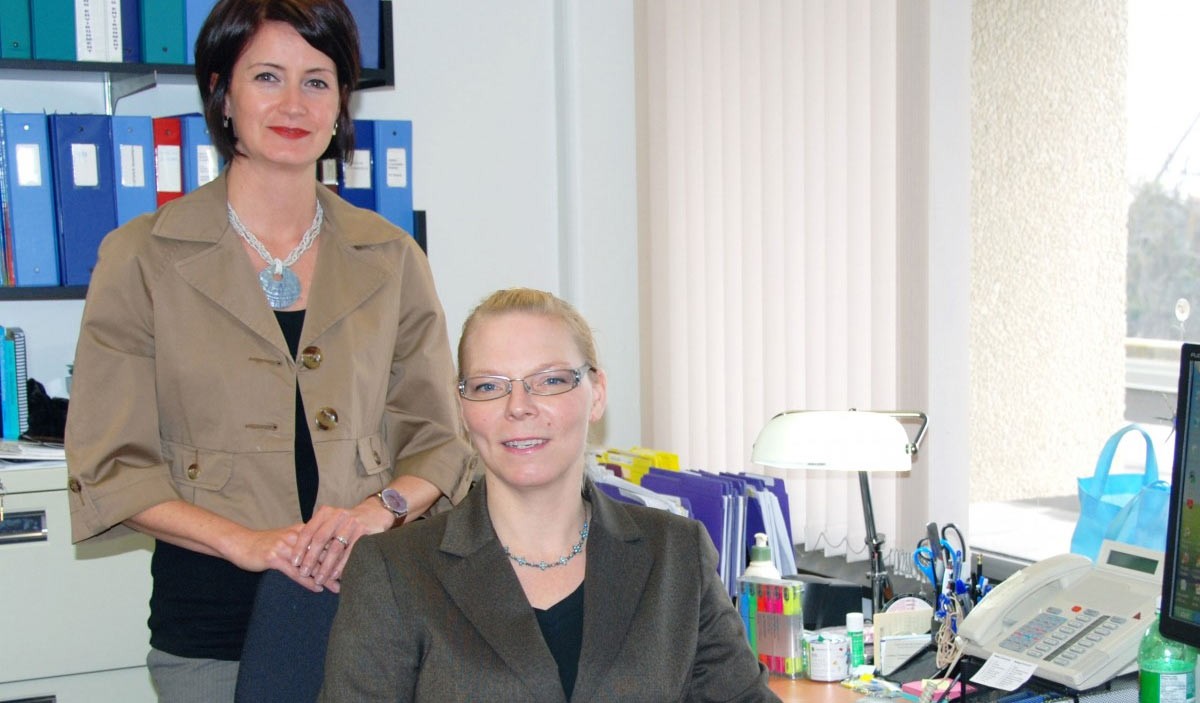
Anitra Squires and Jackie Gruber of the office of human rights and conflict management.
Human rights and conflict management in the workplace
Human rights and conflict management officer Jackie Gruber says that human rights in the workplace can sometimes be a matter beyond policy.
What she means is that, in addition to ensuring that people understand and comply with a strong human rights policy, there’s a need for informal services that allow people to discuss — and hopefully resolve — conflict. Sometimes a process for managing conflict can be very effective in addressing concerns before it comes to the point of a formal complaint, she points out.
Because of that, as of September 23, human rights and advisory services will be changing its name to the office of human rights and conflict management — a name that Gruber says better reflects what the office does and what it offers. It’s also more in line with services offered by other universities, many of which use “informal conflict management systems,” she notes.
The office has also hired a new position, a conflict management advisor, bringing the office to three positions, including Gruber’s own and that of Anitra Squires, who is the confidential intake officer.
According to Gruber, sometimes the challenge is getting the message out about the education and services provided by the office — and about the university’s policies, such as the Respectful Work and Learning Environment policy, currently being updated (to be launched later this fall). In addition to helping those who contact the office, staff also provides information to faculties and units that request it. Gruber cites the respectful work and learning environment presentation the office gives annually to new School of Art and Faculty of Agriculture students.
Both unit and individual requests are voluntary, she says.
“Often students say to me, ‘If only I knew before [that this office exists]‘…. The office provides services such as coaching and feedback to students who might be fearful of a difficult conversation with their thesis advisor, for example, where the power imbalance can affect the relationship — as well as expectations on both sides.”
Sometimes, they just need help with how to approach a situation, or how to have the conversation, adds Gruber. Sometimes, it’s simply a matter of conflicting — unspoken — expectations.
The office also serves faculty, staff and supervisors in cases where it has been contacted to about mediating conflict between employees, for example, or in instances where someone feels they are in a disrespectful situation created by a supervisor or colleague, or in a situation in which someone’s human rights have been ignored or devalued.
Although human rights and respectful workplace policies are the foundation, says Gruber, there are many possibilities, from informal mediation to filing a formal complaint. There are both formal and informal mechanisms, she says. The key is the process.
“We try to work towards building a better understanding,” she says.






